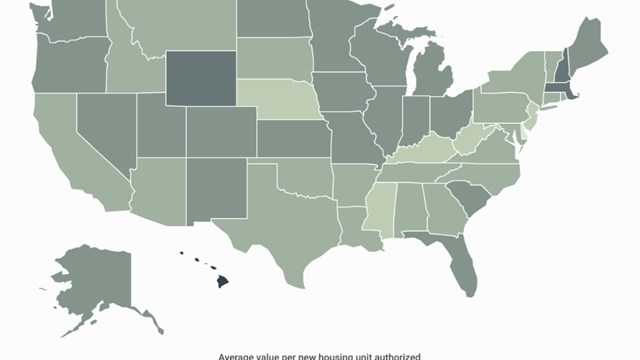In some densely-populated New Jersey cities and townships, parking is a big deal—it’s hard to find exactly the right space when you need it and when you do find it, it’s usually very expensive. Since parking spaces are such a hot commodity, especially in urban areas like Hoboken and Jersey City, it’s not surprising that many co-op and condo buildings operate their own parking facilities, both as an amenity for residents and as a source of revenue. And which of these benefits the building’s residents most value—the money earned from the facility or their own convenience—could be the deciding factor in how their board of directors or board of managers decides to manage the garage.
Whether the parking structure is underneath a high-rise or mid-rise building, adjacent to it or just a parking lot with designated spaces, there’s more to running a parking facility than just painting some stripes on the pavement and watching the cash roll in. Supervising employees, sending out bills and collecting fees and allocating spaces for residents are just some of the considerations that must be taken into account when devising an appropriate parking facility operations plan. Understanding the financial aspect of the process, and recognizing how buildings handle the pros and cons of making money with parking, can position board members and other residents to make the right choice in how to deal with their parking situation.
Who’s In Charge?
Many co-op and condo buildings across New Jersey own underground or adjacent parking facilities, but how they manage those facilities differs from building to building. The association boards of some multifamily residences take a more hands-on approach to managing their parking facility, while others allow a professional parking facility operator to do nearly all the work and pay the building for the opportunity to do so. It’s all about what works best for the building. Sometimes residents get preference for parking spaces, based upon their ownership in the building. Often, they get a discounted rate on parking in the garage.
There are two ways to set up garage management—through a management contract or with a lease contract. A management structure contract is more of a partnership between the parking facility operator and the board, under which parking rates, hours of operation, service levels and improvements to the facility are decided by the owner. One disadvantage of this setup is that some parking facility operators will shy away from working under such a contract, because they prefer to set rates for the facility on their own.
That means when a board is looking for a new operating contract for its garage, the number of potential operators bidding for the job will be fewer if having lower-than-market-rate resident parking fees is a necessity for the building’s board. Having fewer bids means less competition, which can amount to a parking operations contract that is less than as lucrative as it could be for the building. The end result is less financial benefit for residents of the building.
“The co-ops, especially, don’t like to manage the operations. They’d rather get a stream of income from rent and let the operators do their work,” says Andrew Grossman, vice president/counsel for Manhattan-based GGMC Parking LLC.
Donna Amoroso, a spokesperson for Lakewood-based Prompt Parking, which manages over 70 facilities in New Jersey agrees. “When boards hire out a management company it takes the burden off of them,” says Amoroso.” That way someone can give 100 percent to the parking.”
Under both scenarios, the operator collects fees for the garage. But the more popular type of parking facility management is a lease structure contract. Under a lease structure, the operator signs a contract to manage the facility, usually for a term of ten years or more. And though the owner has less control over how the facility is managed, one advantage of this type of contract is that the building is guaranteed a steady revenue stream, regardless of how many patrons use the facility.
Many residential parking garages also serve the community around them, which can be lucrative in good times. But a downturn in the economy can mean lower parking demand and lower revenues from a facility that’s under a management structure contract, says Steven Aiello, senior vice president of Standard Parking Corporation in New York.
“If having a say in pricing is a priority, a management agreement is the best option. If the garage doesn’t really serve the building, a lease would be the best option,” Aiello says.
Some boards choose a management contract partly so they can set two different parking rates—giving a lower rate for residents of the building and a higher one to non-residents—but such a choice can be a losing proposition. While it will benefit the residents who park their cars in the garage, under a management contract, lower resident parking rates means the building will get less revenue, which is a disadvantage to all of the residents. In such a scenario, residents who are not motorists will be subsidizing parking rates for the car owners. Some industry pros say that method doesn’t make sense.
“A flat rate is fairer,” Grossman says.
Shopping Around
Pricing and revenues aren’t the only factors to consider when a board is mulling a new lease or considering a new parking operator. Some operators are better than others, which is why companies that are new to a building’s management should be properly vetted long before they are hired.
“When considering renewing a [parking operations] contract, look at the options out there,” Aiello says. “It’s always good to shop around for parking operators.”
The search should include interviewing the would-be manager of the facility. That individual should be customer-friendly and knowledgeable about his job and the industry.
“Hire a company with a good track record. Check references and find out what their plan is for the garage,” says Kristen Sokich, senior vice president of Propark America, a nationwide garage management company, noting that some companies do more with eco-friendly technology, like installing “green” lighting, which can help the building’s overall profile and attractiveness to buyers. “You could pitch your building as greener than other buildings.”
Some parking garage operators offer amenities that could be more attractive to board members of buildings. With the increase in electric and hybrid car use, some operators offer to install electric car charging stations in garages. The cost of such installations could be shouldered by either the operator or the building owner, depending upon the operator. Some parking garage operators are becoming more eco-savvy, adopting new technologies far ahead of the trend and in advance of their competitors. Parking garages will become the filling stations of the future, Sokich predicts.
It may seem that there isn’t much room for considering aesthetics when poring over the details of a parking facility operations contract, but GGMC Parking has made art installations its trademark look. The company has its own sign and graphics department, which focuses on improving the aesthetics of the garages it manages, as well as increasing the place’s curb appeal. They do so by installing artwork and photos as a way to remind people that the garage is part of the building. On the walls of a garage facility, GGMC Parking employees place posters of artwork and also old photos of the neighborhood in which the garage is located, to beautify the place and give a better sense of where you are.
“We think it’s very important to give a good, clean impression. People really like it,” Grossman says.
Slower Economy, Changed Expectations
In some cases, what works best for the building is a question of what contract terms are most lucrative to the building. During good economic times, leasing contracts increase, because it’s easier for operators to make lease payments when business is good. High unemployment, though, can make the city’s parking tax and other costs related to parking less attractive to commuters, Sokich says. Those commuters might opt to bike to work or take public transportation in their daily commutes.
“In today’s environment, parking revenues are down and a managed contract can make more sense than leasing,” Sokich says.
The slower economy has taken its toll on many parking operations throughout the country, shaking up the market. When there is a decrease in commercial activity, obviously it lowers parking demand, Aiello says. The recent economic downturn adversely impacted parking garage operators, as well.
“A lot of operators have not been able to make their lease payments, so more buildings are looking for managers,” Sokich says.
“The slower economy has definitely taken its’ toll on parking operations across New Jersey,” says Amoroso. “People are paying late, or not paying at all or giving up their spaces all together because of lost income.”
In New Jersey, the state Department of the Treasury offers a bonus for condominium owners, it should be noted, exempting them from the sales tax for parking on the premises in which they live. Just make sure the garage operator keeps careful records and that you keep receipts. The tax rules stipulate that, “For parking facilities that provide both residential and non-residential parking, the operator and parking vendor must keep a record of the sale including the name of the resident, the residential address of the resident, and the amount of the sale in order to substantiate that the sale is for residential parking.” The New Jersey tax rules also state, “Parking charges paid to a homeowners’ association are not subject to sales tax provided that the parking facility is owned or leased and operated by the association, the association is comprised solely of owners and residents of the residential dwelling units, and the parking charges are paid by members of the association.”
Because of the high premium placed on nearby parking for co-op and condo residents, it’s not very common for such multi-unit buildings to choose to sell their parking facility. While there is some flipping of stand-alone, commercial garages owned by residential buildings, it’s the exception. Part of that fact is due to the reality that the market to buy garages under lease properties is not as attractive to would-be buyers.
Generally speaking, the boards of most residential buildings want their garages to be as financially sustainable as possible. When those parking facilities are doing well financially, there’s often no need, or desire on the part of residents, to sell them.
Jonathan Barnes is a freelance writer and a regular contributor to The New Jersey Cooperator. Staff Writer Christy Smith-Sloman contributed to this article.







Leave a Comment